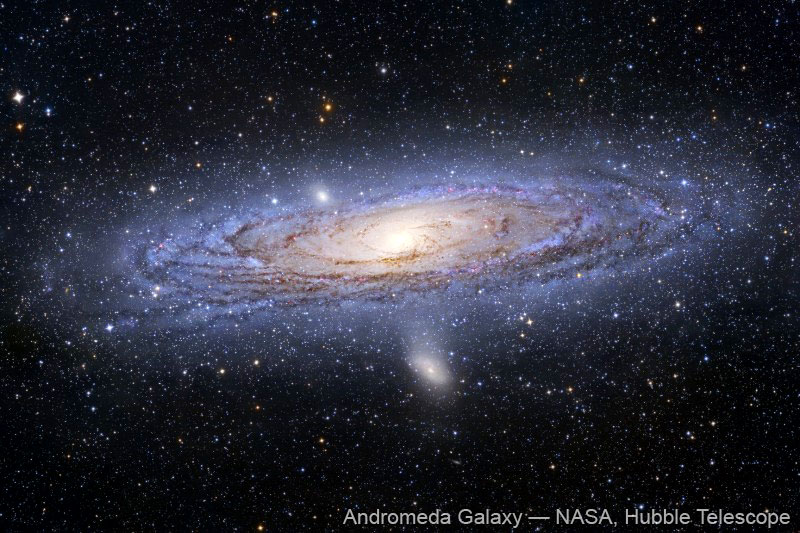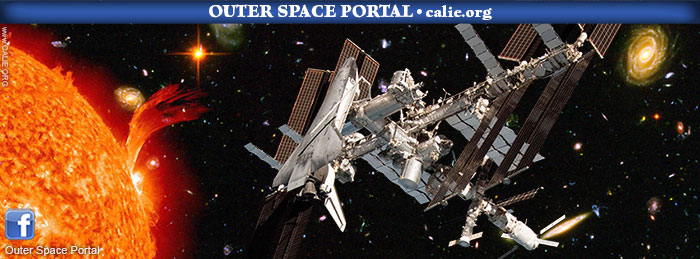 |
 |
 |
Publishing Corner: Indian Community: Science & Wonder Indian Heros: California Indian Art: CALIE Library: Academic Financial Aid: Tribal Governments: Indian Gaming: |

ANDROMEDA GALAXY HUBBLE PICTURESThe Andromeda Galaxy, also known as Messier 31, M31, or NGC 224; often referred to as the Great Andromeda Nebula in older texts) is a spiral galaxy approximately 2.5 million light-years away in the constellation Andromeda. The Andromeda Galaxy is the nearest spiral galaxy to our own galaxy, the Milky Way. As the Andromeda Galaxy is visible as a faint smudge on a moonless night, it is one of the farthest objects visible to the naked eye, and can be seen with binoculars even in urban areas...
Webmaster's Note: The most distant object easily visible to the unaided eye is M31 — the great Andromeda Galaxy is some 2,500,000 light years away. One light year equals approximately 6,000,000,000,000 miles (six trillion Earth miles) and represents the amount of distance light travels in one Earth year. It takes our sun's light roughly 8 minutes to reach the Earth. By contrast, it takes about 5.3 hours, or 318 minutes for sunlight to reach Pluto — so you can imagine the Andomeda Galaxy is very far from our solar system because it takes light from the Andromeda Galaxy some 2,500,000 years to travel to Earth. The webmaster believes that makes this image of Andromeda some 2.5 million Earth years old — the amount of time it took for this light to reach Earth telescopes) — the real present-day image of Andromeda Galaxy would appear 2.5 million years newer. This is why astronomy star gazing is referred to as "looking back in time."
|
CALIF INDIAN EDU NETWORK: AHMIUM.org | SDICENTER.org | APAPAS.com
—
WEB SITE DESIGN
www.calie.org COPYRIGHT 2008-Present • ALL RIGHTS RESERVED



